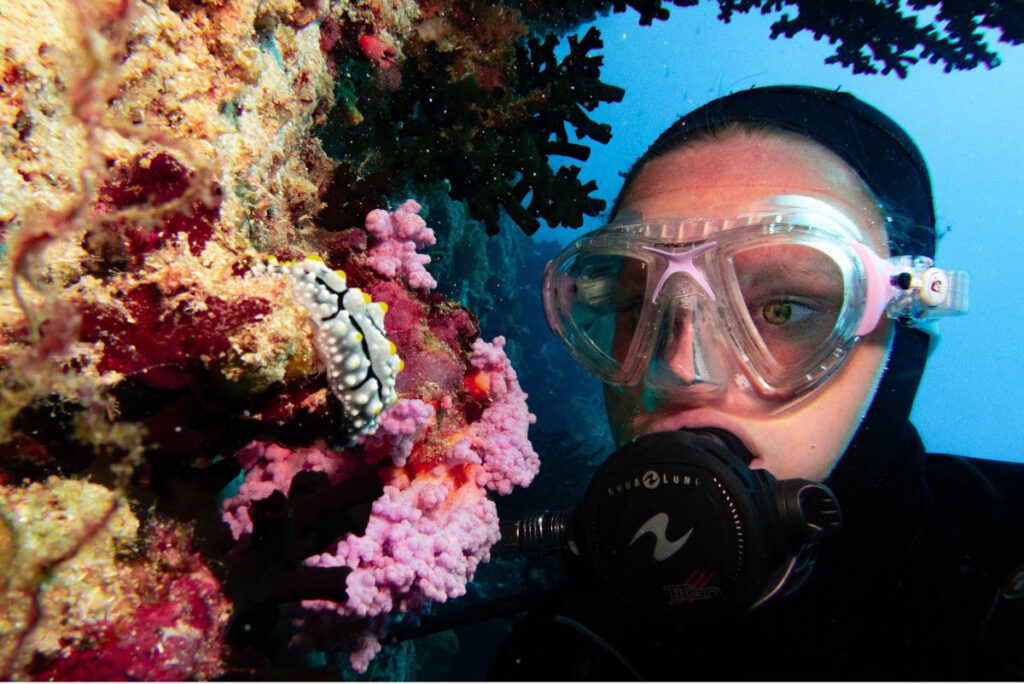Scuba diving has been a popular activity for many ocean-lovers and adventurers for a long time now. The United States alone saw 2.48 million scuba diving participants in 2021, showing how many people love exploring the sea. However, diving is more than just jumping into the water head first; there are some essential considerations to make before diving, such as your vision. For people needing vision correction, diving can be a struggle when you can’t see clearly. As such, many people use prescription diving masks or contact lenses when diving to ensure they can see their surroundings clearly.
If you want to get the best experience, it helps to consider your preferences and needs before choosing how to correct your vision when underwater. Here’s how you can scuba dive safely if you wear glasses or contacts:
Diving with a prescription mask
Scuba diving with glasses is not recommended, as they prevent your mask from creating a tight seal on your face. It’s also not the most comfortable experience and can cause your glasses to get damaged or broken. Prescription scuba masks are a viable way for you to see clearly underwater. You can choose a dive mask that fits your face well and see if prescription lenses can be installed. It’s important to consider your prescription as well, since that can affect the thickness and curve of your lenses, impacting your comfort when diving.
If you only need to see or read things up close, Another option is getting bifocal diving masks that act like typical reading glasses. You can stick adhesive magnifying lenses onto your mask or have them custom-made. There are also accessories like SeeDeep’s underwater reading glasses, which are worn overtop of the user’s diving mask and held in place by a rubber head strap. These can be moved up and down on the mask so they aren’t just at the bottom. Divers can also leave them on for the whole dive or remove them for unobstructed vision when necessary.
Diving with contact lenses
Other than prescription diving masks, you can use contact lenses when diving. Contacts are easy to purchase through various channels and retailers; you can buy them online or in-store and find lenses that match your specific needs. They’re also often cheaper than prescription masks and allow you to see clearly even when your mask is off.
Hard contact lenses are an option; however, they don’t allow gas to penetrate, which can cause blurry vision, dryness and discomfort. The nitrogen your eye absorbs is released when you descend into the water, and the contacts act as a barrier when that happens. Soft contact lenses are recommended for scuba divers as they can let gas penetrate, preventing blurriness and discomfort. They’re also more likely to stay in your eyes if your mask floods since they’re bigger than hard contacts.
Which is better?
Either prescription masks or contact lenses are safe and ways to help you see clearly underwater, so the best option depends on your vision needs and preferences. If you already wear contact lenses, you can stick with them since you’re already comfortable with them or swap your hard lenses for soft ones for the best experience. Prescription masks can help if you don’t like the feel of contact lenses or if you’re someone who dives often and believes the investment is worth it.
Scuba diving can be an exciting adventure, but it’s essential to stay safe while underwater to minimize and avoid risks. Extensive training, understanding limits, and diving with a buddy are all important safety aspects, but so is ensuring you have the right equipment and gear for the dive, including the proper eyewear that can help you stay aware of your surroundings and other divers.






